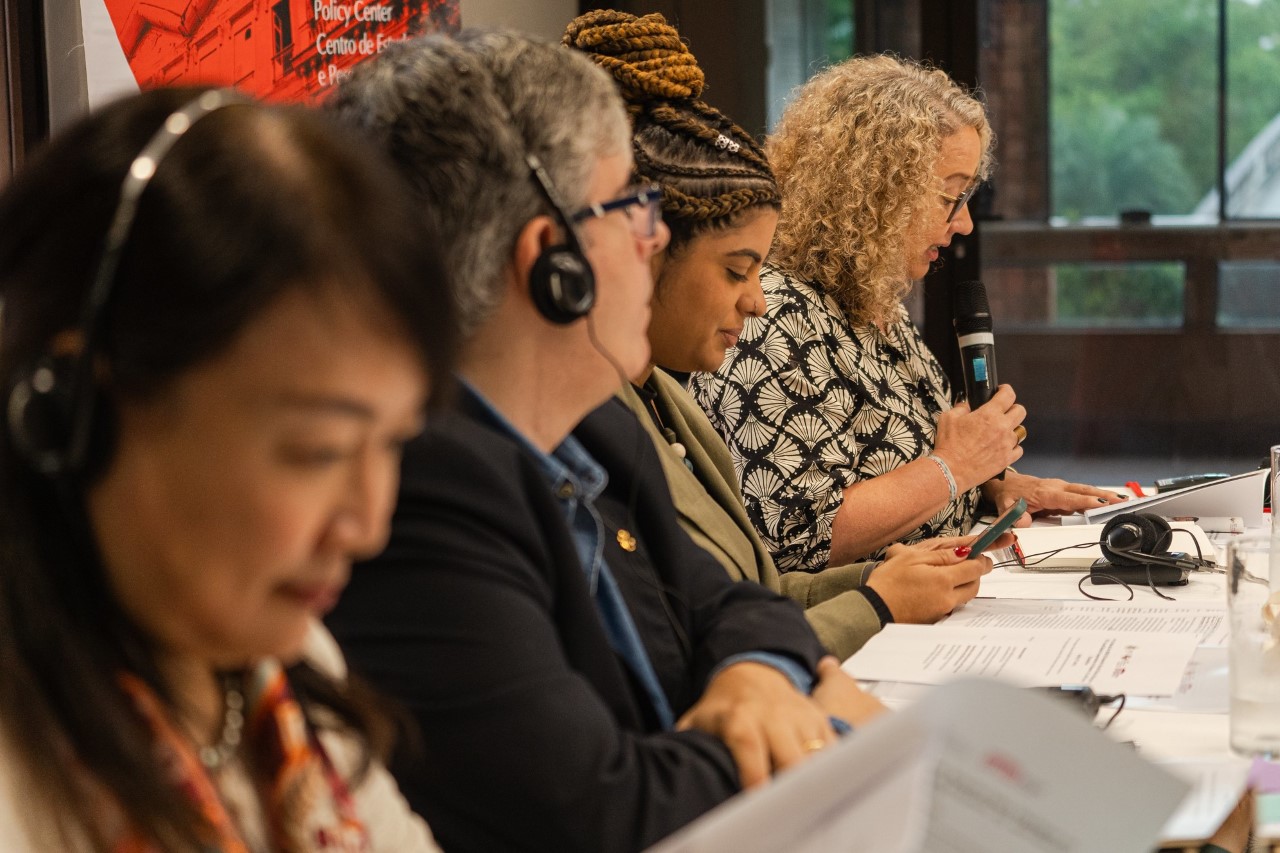Brazilian and Chinese think tanks deepen discussions on new economic order, AI, and green transition
On the eve of the BRICS Leaders’ Summit, the BRICS Policy Center (Brasil) and the Beijing Club (China) brought together experts in Rio to debate key topics on the Global South agenda

Cooperation in trade; joint efforts to increase the representation of Global South countries in the international economic order; initiatives for the ethical use of artificial intelligence (AI) and equity in data governance; and pathways toward a just and financially viable green transition. These were central themes of the BRICS agenda and of bilateral interest to member countries. They also took center stage at the event “Perspectives for the BRICS Summit: Brazil–China Dialogue on BRICS and Global Cooperation,” held Thursday, July 3, as part of a series of events leading up to the BRICS Leaders’ Summit in Rio de Janeiro.
The event was held as part of the ongoing commemoration of the fiftieth anniversary of diplomatic relations between China and Brasil, which was celebrated last year. Promoted by the BRICS Policy Center—a think tank affiliated with the Institute of International Relations at the Pontifical Catholic University of Rio de Janeiro (PUC-Rio)—and the Chinese think tank Beijing Club for International Dialogue, the gathering brought together researchers and policy experts to advance shared understandings and proposals on these priority topics between the two BRICS founding countries.
“We reaffirm our strong commitment to enhancing dialogue and promoting the development of joint solutions. While recognizing the existence of challenges, we acknowledge the significant opportunities that lie ahead. We believe universities and think tanks have a special and crucial role in building bridges between nations,” said Marta Fernandez, Director of the BRICS Policy Center.
Artificial intelligence, sovereignty, and development
The discussion centered on three core themes: the geopolitical implications of technology, the widening of digital inequalities, and the imperative for sovereign and inclusive regulation. Participants stressed that the rapid advancement of AI in developed nations is increasingly concentrating wealth and technological dominance in the Global North, while constraining opportunities for industrialization and development in Latin America, Africa, and South Asia.
In the experts’ view, this dynamic threatens to widen the existing digital divide, fostering exclusion and technological dependency. As a result, participants stressed the importance of building domestic ecosystems that include digital infrastructure, regulatory frameworks, and clear legislation on issues such as data protection, cybercrime, content regulation, and e-commerce.
“It is therefore essential for BRICS countries to invest heavily in digital infrastructure—not just roads, bridges, and ports, but networks, public clouds, and data infrastructure. We also need to share technology and promote open-source solutions,” said Zhao Hai of the Chinese Academy of Social Sciences. He continued his remarks by noting that, despite the predominant control over patents and talent pools, open-source platforms offer accessible tools for developing countries to adapt technologies to their own realities.
To address these challenges, panelists proposed the creation of joint training centers among BRICS countries, focused on talent development, collaborative research, and the development of proprietary algorithms. Another key proposal was to expand funding for public digital infrastructure — such as sovereign clouds and regional AI systems—with support from the New Development Bank (NDB).
Green transition and climate cooperation in a multipolar world
On this front, participants agreed on the need for climate justice as the foundation of any decarbonization process, as well as the urgency of reforming the international financial architecture to ensure equitable and accessible financing. The core argument was that developing countries face a dual challenge: to grow economically while also reducing emissions. Participants likewise stressed that a just transition must preserve livelihoods, respect historical rights, and avoid the creation of new sacrifice zones, often located in peripheral or environmentally sensitive areas.
The forthcoming 30th session of the United Nations Climate Change Conference (COP30), to be held in Belém, Pará, in November of this year, also featured prominently in the discussion. The event was underscored as a pivotal opportunity for countries of the Global South to articulate their perspectives on the transitions they envision.
“We are witnessing deeply troubling shifts in the international order, especially the growing fragility of multilateral institutions. Cooperative frameworks such as BRICS have the potential to contribute meaningfully to the revitalization and strengthening of the system, which presently faces significant challenges. With respect to the climate agenda, there are clear points of convergence between the priorities of the G20, BRICS, and the upcoming COP30,” said Maureen Santos, climate activist and professor of International Relations at PUC-Rio.
In closing, a shared warning emerged among participants: the transition will not happen on its own. Without collective action and international coordination, it could stall—or deepen existing inequalities. As such, strengthening multilateral forums like BRICS was deemed essential for building new rules and mechanisms, in recognition of the Global South’s growing leadership in cooperative solutions.
Think tanks in BRICS
Within the People to People (P2P) pillar of BRICS, which encompasses civil society initiatives, think tanks have emerged as one of the group’s most structured and enduring forms of engagement. For over a decade, the BRICS Think Tanks Council (BTTC) has met regularly, and in April of this year, under the leadership of Luciana Servo, President of the Institute for Applied Economic Research (IPEA), the Council submitted a set of recommendations to Brasil’s BRICS sherpa, Ambassador Mauricio Lyrio.
“Think tanks are not public policy decision-makers. So, in such a complex geopolitical moment, bringing together institutions rooted in knowledge and capable of engaging in dialogue with their governments helps ensure that those governments engage in more meaningful dialogue with one another,” said IPEA President Luciana Servo in an exclusive interview with BRICS Brasil at the time.